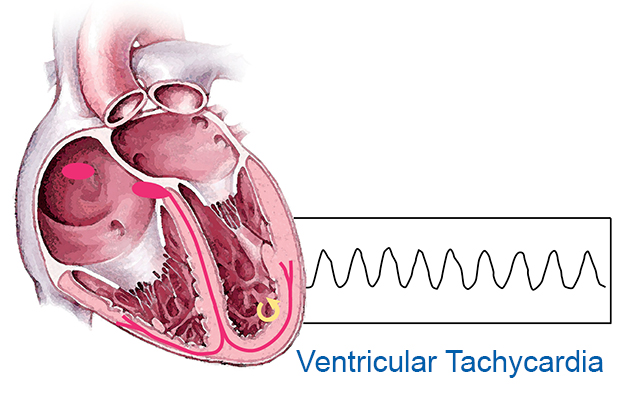Ventricular tachycardia (V-tach) is a potentially life-threatening heart rhythm disorder that occurs when the heart’s lower chambers (ventricles) beat too quickly. This condition can cause symptoms such as chest pain, shortness of breath, dizziness, and fainting. In this blog, we will discuss the causes, symptoms, and treatment options for V-tach, as well as how the Cleveland Clinic Abu Dhabi can help you find the best doctor in Dubai to manage your condition.
Causes of V-tach
V-tach can be caused by a variety of factors, including:
Heart disease
People with a history of heart disease, such as coronary artery disease, heart attack, or heart failure, are at an increased risk for developing V-tach.
Electrolyte imbalances
Abnormal levels of certain electrolytes, such as potassium or magnesium, can disrupt the heart’s electrical activity and lead to V-tach.
Medications
Some medications, such as certain anti-arrhythmic drugs or antidepressants, can increase the risk of V-tach.
Genetic factors
In rare cases, V-tach can be caused by genetic mutations that affect the heart’s electrical system.
Symptoms of V-tach
Some people with V-tach may not experience any symptoms, while others may experience symptoms such as:
- Chest pain or discomfort
- Shortness of breath
- Dizziness or lightheadedness
- Fainting or loss of consciousness
- Rapid or irregular heartbeat
- Treatment Options for V-tach
The goal of V-tach treatment is to restore a normal heart rhythm and prevent future episodes. Treatment options may include:
Medications
Medications such as anti-arrhythmic drugs or beta-blockers can help control heart rate and rhythm.
Cardioversion
Cardioversion is a procedure that uses electrical shocks to restore a normal heart rhythm.
Catheter ablation
Catheter ablation is a minimally invasive procedure that uses radiofrequency energy or other sources to destroy small areas of heart tissue that may be causing abnormal heart rhythms.
Implantable cardioverter-defibrillator (ICD)
An ICD is a small device that is implanted under the skin of the chest and monitors the heart’s rhythm. If an abnormal heart rhythm is detected, the device delivers an electrical shock to restore a normal rhythm.
The Cleveland Clinic Abu Dhabi is a world-class healthcare facility that offers top-notch cardiac care. The facility is staffed by some of the best doctors in Dubai, who can provide the care and support you need to manage your V-tach.
If you have been diagnosed with V-tach, the Cleveland Clinic Abu Dhabi can help you find the best doctor in Dubai to manage your condition. They offer a range of diagnostic tests and treatment options, including medications, cardioversion, catheter ablation, and ICD implantation if necessary.
In addition to medical treatment, there are also several steps you can take to manage your V-tach, including:
Maintaining a healthy lifestyle
Eating a healthy diet, staying physically active, and avoiding tobacco and excessive alcohol can help reduce your risk of V-tach.
Managing stress
Chronic stress can increase your risk of V-tach, so finding healthy ways to manage stress, such as exercise or relaxation techniques, can be helpful.
Taking your medications as prescribed
If your doctor has prescribed medications to manage your V-tach, it’s important to take them as directed and report any side effects or concerns to your healthcare provider.
In conclusion, V-tach is a serious heart rhythm disorder that requires prompt medical attention. The Cleveland Clinic Abu Dhabi offers top-notch cardiac care and can help you find the best doctor in Dubai to manage your V-tach. By understanding the causes, symptoms, and treatment options for V-tach, and working closely with your healthcare team, you can take the necessary steps to manage your condition and reduce your risk of complications. Don’t hesitate to seek medical attention if you are experiencing symptoms of V-tach – your heart health is too important to ignore.

Average Rating